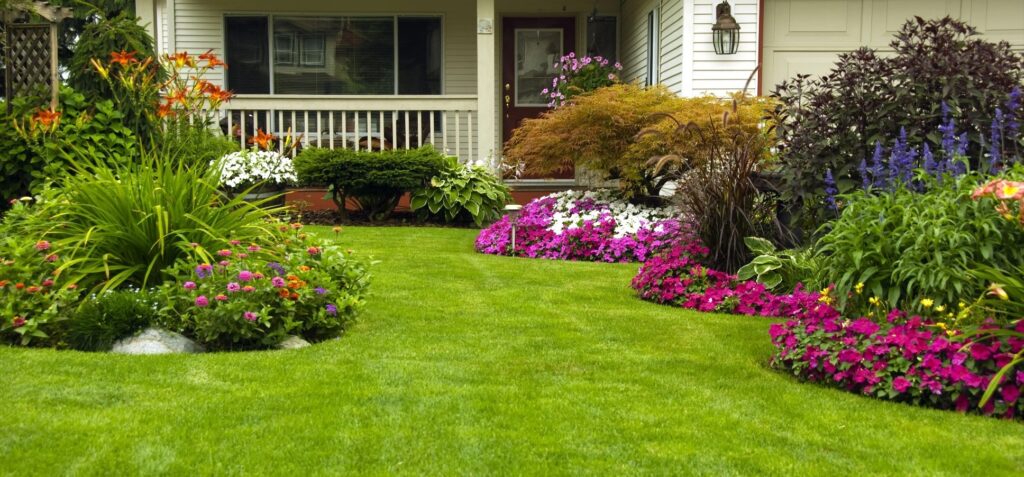
One of the most common sod grasses for South Florida lawns is St. Augustine grass, scientifically known as Stenotaphrum secundatum. St. Augustine grass is a warm weather grass that is popular in our area because of its natural resistance to saltwater and high tolerance against heat and humidity. The most common varieties of St. Augustine sod grass include: Floratam, Palmetto, Bitterblue, CitraBlue, ProVista and Seville with each having their own benefits and drawbacks. If sugarcane mosaic virus is a concern to you The State of Florida suggests using Palmetto type St. Augustine sod. St. Augustine turf grasses spread via stolons and create lush, dense mats that help push out noxious weed infestations. But St. Augustine lawns aren’t immune from problems and keeping it looking its best requires a little TLC.
Before beginning any treatment plans for your Palm Beach County St. Augustine lawn, get a soil test. St. Augustine sod grass needs the proper nutrients and drainage to truly thrive and it doesn’t do well in highly compacted soil. Check your soils pH level. Ideally this should range between 5.0 and 7.5. If your soil doesn’t meet these requirements and you still want to grown St. Augustine grass, a soil amendment may be required.
After you know your soil is a good match for St. Augustine sod grass, it is matter of proper sunlight, fertilization, irrigation and pest control to keep it looking its best. St. Augustine sod grass is not drought tolerant, but too much irrigation can lead to different types of lawn fungus.
St. Augustine Grass Tips in South Florida
- St. Augustine sod grass thrives in the hot sun of Palm Beach County and the parts of your lawn under shade will not be as prosperous as full sun areas.
- To encourage deep root growth your St. Augustine lawn should be watered deeply for fewer days rather than lightly everyday.
- Irrigate your St. Augustine lawn in the morning instead of the night to aid in proper evaporation and avoid pooling water
- Fertilize St. Augustine grass with slow-release nitrogen rich fertilizers
- Keep an eye out for destructive lawn pests like the southern chinch bug
Why not leave your St. Augustine lawn treatment to a professional. Our locally owned and operated company can keep your South Florida lawn looking great with complete professional lawn fertilization, pest control and weed control service. We have been treating West Palm Beach, Palm Beach Gardens, Wellington and Jupiter, Florida residential and commercial lawns for decades and have the experience to get the job done right.
We offer natural, environmentally friendly and pet friendly lawn weed control products as an option to our clients. Our experienced technicians can discuss your concerns and the options available to you.

